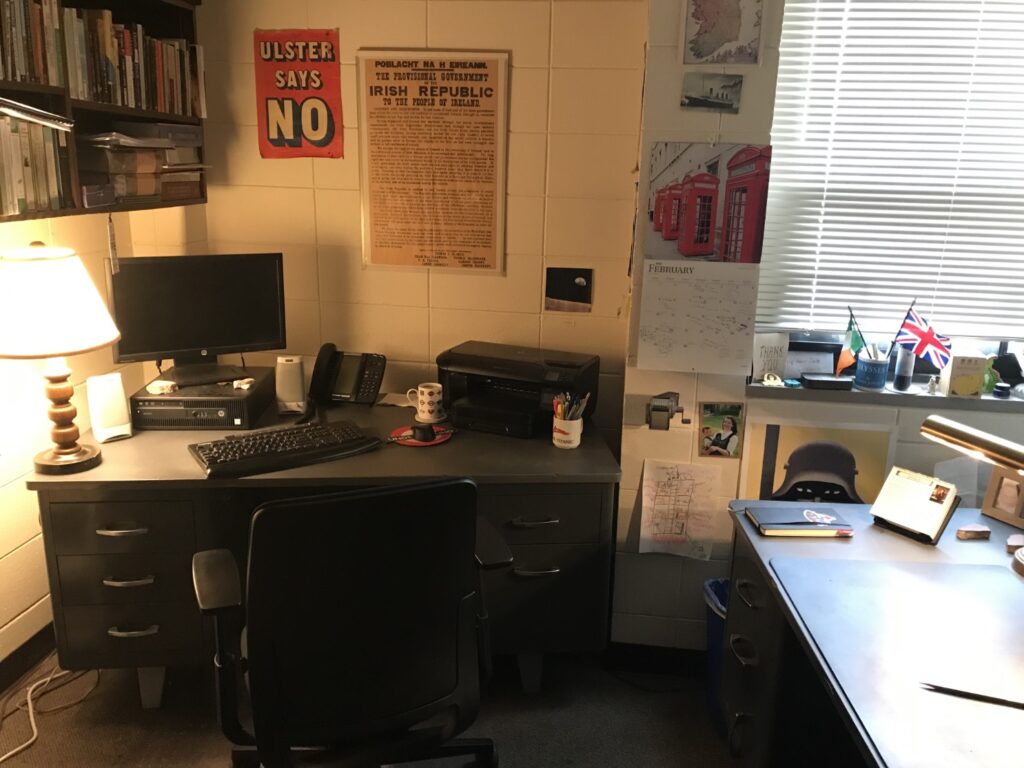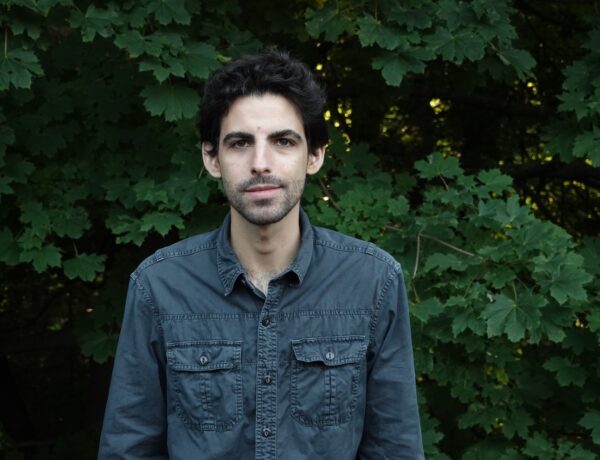Patrick Hicks is the author of over ten books, including The Collector of Names, Adoptable, and This London—he also wrote the critically and popularly acclaimed novel, The Commandant of Lubizec, which was published by Steerforth/Random House.
His latest book is In the Shadow of Dora, which was recently named a finalist in the ScreenCraft Cinematic Book Writing Competition. Patrick’s work has appeared in such journals and magazines as Ploughshares, The Missouri Review, The Georgia Review, Prairie Schooner, North American Review, AlaskaQuarterly Review, Salon, Chronicle of Higher Education, Commonweal, Huffington Post, Guernica, The Utne Reader, and many others.
Looking for inspiration to help you achieve your writing goals? Subscribe to our newsletter for exclusive insights into the routines, habits, and techniques of some of the most celebrated authors in history.
Hi Patrick, welcome to Famous Writing Routines, great to have you here with us today! Your latest book, In the Shadow of Dora, explores the intersections between the terror of the Third Reich’s V-2 rocket program and the wonderment of landing on the moon. Can you tell us more about this connection and what you wanted to convey through your novel?
I was interested in exploring the history of technology and the dubious ethics that are sometimes attached to new technology. In the case of the V-2, the United States acquired incredible rocket technology at the end of World War II, but it came with a Faustian bargain. We didn’t prosecute the scientists who developed the V-2 with crimes against humanity.
No, instead, we brought them to the US and told them they could live in freedom if they developed the best rockets in the world. And these Nazi scientists did just that. They built the Saturn V, which ultimately got us to the moon.
It’s safe to say that we never would have gotten to the moon without those Nazi scientists, and yet that secret history has largely been ignored when we talk about Apollo. I suspect most people have never heard of the underground concentration camp called Dora-Mittelbau. That’s where all the V-2s were built by slave labor. I wanted to address that.
The book is set in two very different decades – from the Nazi concentration camp of Dora-Mittelbau to the coast of central Florida on the eve of Apollo 11. How did you go about researching these time periods to create a vivid and accurate portrayal?
I was fortunate to receive a number of grants that allowed me to do research at Dora-Mittelbau, and I was also able to be at the Kennedy Space Center, the Johnson Space Flight Center in Houston, and the Marshall Space Flight Center in Huntsville where Wernher von Braun and the other scientists worked. Seeing these places first hand was vital. I mean, if I can’t see these places in my imagination, the reader certainly won’t be able to either.
Writing the first section of In the Shadow of Dora went smoothly because I know the history of the Third Reich very well but—to my surprise—writing about my own country, in the year 1969, was unexpectedly difficult. I had to imagine how my main character, Eli, a Holocaust survivor of Auschwitz and Dora-Mittelbau, would view America? What would he think of the Vietnam War? Civil Rights? The Beatles? Television? It was a challenge to see my nation’s history through his eyes.
The book deals with themes such as the meaning of secrets and how the past influences the present. Can you talk a bit about how these themes resonate with you personally and why you felt it was important to include them in the book?
My first novel was The Commandant of Lubizec, and it explores how the Holocaust is remembered. What is preserved? What is forgotten? Even though Operation Reinhard was one of the most deadly parts of the Holocaust, few people have heard of it, and I wanted to write about that.
For my second novel, In the Shadow of Dora, I was interested in the secrets that are buried, which was the case with how the US got our rocket technology. My latest novel, Across the Lake, which I’m working on right now, is about the only all-female concentration camp in the Third Reich. I’m writing about gender and the Holocaust. Whenever we think of the Holocaust, gender usually isn’t considered as much as it really should be.
You’ve taught creative writing, Irish literature, and Holocaust studies. How do these subjects influence your writing, and what do you hope your students take away from your classes?
That’s a good question, and I suppose I’d like them to consider the intersections between memory and words. How do we write the past? Which stories do we tell? How does the past influence us? More than anything, I’m hoping that my students can see themselves in history and come to the realization that the lives of the past are every bit as vibrant and sacred as the lives that we live today.
Do you struggle to stay focused while writing? You’re not alone! That’s why Famous Writing Routines recommends Freedom – the ultimate app and website blocker for Mac, Windows, Android, iOS, and Chrome. With over 2.5 million users, Freedom helps writers stay on task and avoid distractions. Get started for free today and reclaim your productivity!
Do you have any rituals that you follow before starting to write, to get yourself in the zone?
I see writing as a very blue-collar job. You get up, you go into the office, and you write. No one asks a plumber if they are inspired to plumb. Writing is much the same way. You have to be in the chair to catch the words. You have to clock in.
Can you tell us about your writing routine? What does a typical day look like for you?
I’m a morning writer and I have a goal of reaching at least 750 words a day. I don’t get out of my chair until I reach those 750 words. On some days I’ll write 2,000 words and on other days it’s a struggle to reach the target. But like a plumber who might be dealing with uncooperative pipes, I’ll stay there until the job is done right.
That old adage of believing in perspiration over inspiration is very true, at least for me. I can’t tell you how many times entire scenes have come to me when I least expected them. If I wasn’t at my desk, clocking in, doing the work, I would have missed those moments.
If you could have a conversation with any author throughout history about their writing routine and creative process, who would that person be?
I find Ulysses to be endlessly fascinating and intellectually nourishing. Every novelist writing today owes something to James Joyce. He changed everything. It would be interesting to chat with him and see how he went about editing his masterpiece. I’d also very much like to meet Pat Barker. I love her work. In fact, her novel Regeneration totally changed my understanding of what historical fiction can be. Talking to her about research and craft would be a real gift.
I’d love to know about the books you’re reading at the moment. What have been some of your favourite recent reads?
Now that my third Holocaust novel is nearly finished, I’m switching gears and turning my attention to nonfiction. I’m writing a travelogue about my home state of Minnesota. After ten years of researching and writing about the Holocaust—and after being at so many concentration camps—it will be refreshing to write something light-hearted and personal. I’m currently reading a lot of books about Minnesota history and quirky places in the state.
What does your current writing workspace look like?
I’ve been teaching at Augustana University for over twenty years and my office is where I do most of my writing. I have two desks: one for fiction and one for poetry. I’ve intentionally made my office feel like a living room. I want to feel comfortable and at home when I’m writing. It’s easier for me to fall into the dream-state of fiction this way.

Affiliate disclaimer: Some links on this website are affiliate links. We may earn a small commission if you make a purchase through these links, but only promote products we truly believe in. We disclose affiliate links and give honest reviews.



No Comments